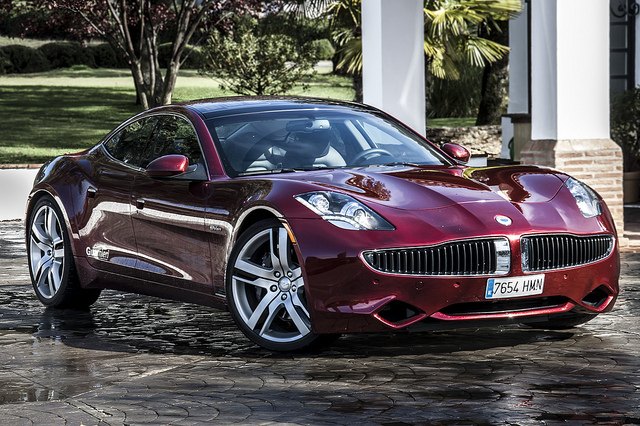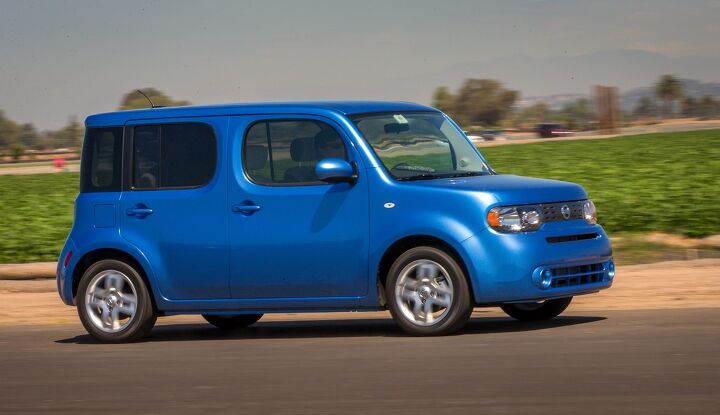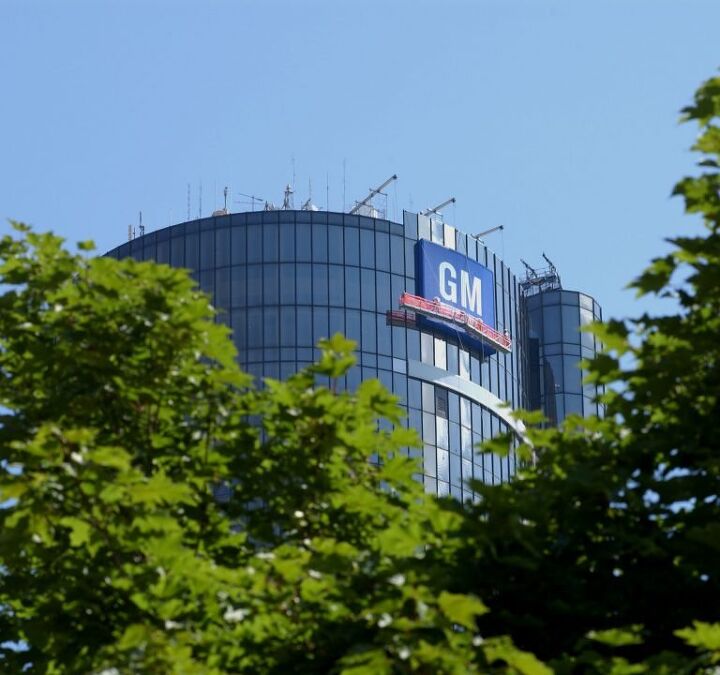#Industry
More Models and Soon: Daimler Promises to Amp-up Its Electric Vehicle Program
After a Wednesday announcement stating it had failed to cut fleet emissions for the first time since 2007, Daimler has promised to expand its electric vehicle program and shorten the timeline. However, the automaker isn’t willing to shoulder all the blame for not being green enough. Consumer trends have shifted strongly toward larger, less efficient crossovers and SUVs in recent years. Daimler knows this better than anyone with global sales of the Mercedes-Benz GLA, GLC, and GLE gradually replacing its more-stagnant sedan deliveries.
Still, Europe has set very specific emissions requirements and the German company has fallen behind. It’s time to make amends by publicly promising new electrified models and a corporate goal closer to the state-sponsored pollution target.
Supreme Court Case Could Make Patent Lawsuits Easier on Domestic Automakers
A Supreme Court ruling between two food companies may benefit the Detroit Three and its many domestic suppliers.
The case of TC Heartland LLC v. Kraft Foods Group Brands focused on where plaintiffs in an intellectual property or patent infringement dispute can file a lawsuit. Current U.S. law dictates that the plaintiff may file a patent infringement suit in any court district where the defendant does business. This has saturated the Eastern District of Texas with countless patent and I.P. lawsuits. Plaintiffs prefer the region because rural Texas juries are more likely to rule against big businesses and the district is known for expediting proceedings.
According to a January study by the Stanford Technology Law Review, only about 15 percent of cases heard in the court actually involved a patent invented within the district or had an accused party that had an office in the area. However, the Supreme Court is expected to put the kibosh on the practice by forcing plaintiffs to try cases near the defendant’s headquarters — meaning domestic automakers could have the home field advantage in future legal proceedings.
Faraday Future's Chinese Sugar Daddy is Selling Land to Improve Its Crippling Financial Woes
Faraday Future is more of an automotive marketing company than it is an automaker. The company has been making unsubstantiated promises and ignoring its fiscal woes without giving much assurance that it will ever bring a production car — or assembly plant — into the real world. Problems have continued to mount and, like any deeply rooted zit, the situation is gradually coming to a head.
This month, Nevada State Treasurer Dan Schwartz demanded that the Governor’s Office of Economic Development conduct an audit of Faraday — throwing in Tesla for good measure. Schwartz has been critical of FF ever since it received government money to help build its factory, only to see work on the facility stalled due to nonpayment last fall. Faraday has since scaled back its construction plans, claiming that it was necessary to ensure production begins on schedule.
Now, FF’s primary backer, LeEco, is selling a 49-acre Silicon Valley property less than a year after purchasing it from Yahoo Inc. This comes after the company’s founder and CEO, Jia Yueting, explained to employees in November that LeEco was facing devastating financial issues stemming from its uncontrolled expansion.
Green Auto Loan and Grant Programs on Trump's Budget Chopping Block
Automakers would have to fund a larger share of future green technology projects if the Trump White House’s budget blueprint passes as written.
The administration proposes to do away with a little-used — and sometimes controversial — U.S. Energy Department loan program, as well as a grant program dedicated to spurring advanced fuel-saving technologies.
Apparently, Mller Wasn't As Interested In FCA Partnership As We Thought
To say that there was some speculation surrounding Volkswagen CEO Matthias Müller’s response to a potential partnership with Fiat Chrysler Automotive would be a severe understatement.
Müller said there had been no contact between he and FCA CEO Sergio Marchionne, but he’d not ruled anything out. He seemed to have an indifference about the subject, which left plenty of room to let minds wander.
According to Automotive News’ Larry P. Vellequette, that’s not the whole story.
FCA's Marchionne Changes Tune on VW After Unflattering Remarks From Mller
Fiat Chrysler Automobiles CEO Sergio Marchionne changed his stance on the appeal of a potential merger with Volkswagen AG, saying he now has “zero interest” after being publicly spurned by company CEO Matthias Müller.
Marchionne had previously expressed a repeated interest in sharing business with the German automaker, especially with regard to green technologies.
However, after an initial remark where he said he was “not ruling out a conversation,” Müller explained that he had no direct contact with the FCA CEO. “It would be very helpful if Mr. Marchionne were to communicate his considerations to me too and not just to you,” Müller told German reporters on Tuesday. “I am pretty confident about the future of Volkswagen, with or without Marchionne,” he concluded.
Which Platform Will the Jeep Wrangler Pickup Use?
We know it’s coming. Jeep CEO Mike Manley, while speaking at the North American International Auto Show, definitively stated the next-generation Wrangler will spawn a pickup. However, nobody has said anything about what the soup base for this new Wrangler stew is going to use.
When Jeep showcased the Gladiator pickup concept way back in the DaimlerChrysler era, it was built using Ram 1500 framework. It was a truck converted into a Wrangler essentially, instead of a Wrangler modified into the pickup format. While it’s been a decade since that concept saw the light of day, its recipe might still be the one FCA uses for a modern-day incarnation.
There’s evidence to support that claim, but — be warned — there is also speculation ahead.
The Man Who Designed Nissan's Quirkiest Cars is Retiring
As it funnels its suit-and-ties over to Mitsubishi and rearranges its own departments like mad, Nissan is losing veteran designer, stylish dresser, and chief creative officer: Shiro Nakamura. Responsible for some of Nissan’s more radical designs, Nakamura oversaw the styling for the revamped GT-R and current 370Z, along with intentionally quirky models like the Juke, Leaf, and Cube.
Nakamura said his designs were purposefully modern and intended to express the “shock of the new.” The objective was to amend the company’s western image as a discount brand and give its vehicles unique personalities and character, which — love or hate it — the Juke has in spades.
Alfonso Albaisa, Infiniti’s current design head, will be stepping in to take over for the retiring Nakamura as senior VP and Nissan’s styling overlord. Replacing Albaisa as Infiniti’s global design chief will be former BMW design boss Karim Habib.
Nissan Puts More Executives on Bus to Mitsubishi
Nissan is remaking Mitsubishi Motors in its own image, restructuring it into a more multinational organization with a less traditional Japanese hierarchy. The automotive arm of the tri-diamond keiretsu has already undergone early changes to revamp production and take advantage of its new role within the Franco-Japanese alliance after selling a controlling stake to Nissan in October for $2.29 billion.
Now Nissan is further shuffling the deck in Mitsubishi’s boardroom to better represent a company within the Renault-Nissan partnership. The management changes place more foreigners and a woman in top executive roles, ending the company’s long-standing practice of promoting employees based exclusively on seniority.
Intel Scoops Up Autonomous Tech Company Mobileye for a Whopping $15.3 Billion
After collaborating with Mobileye to help BMW put a fleet of roughly 40 self-driving test units on the road before the end of this year, Intel has decided that it would rather just buy the cow. The acquisition of autonomous driving technology leader Mobileye is going to cost the computing giant a colossal $15.3 billion.
More specifically, an Intel subsidiary will offer $63.54 per share for all issued and outstanding shares, which carries an equity value of $15.3 billion and an enterprise value of $14.7 billion. No matter how you slice it, it’s the world’s largest purchase of a company solely focused on the autonomous driving sector. The motivation is clear. Mobileye accounts for around 70 percent of the global market for modern driving aides, anti-collision systems, and advanced autonomous safety.
Mitsubishi Might Share Future Pickup Platforms With Nissan
Mitsubishi Motors needs a pickup truck for the U.S. and Nissan wants a cheaper one for the global market. While the Red Diamonds’ Raider filled a ten year gap in the company’s lineup after the American discontinuation of the Mighty Max in 1996, sales were disappointing and production ended back in 2009. Now Mitsubishi and its new parent Nissan are investigating joint production of pickup trucks in Southeast Asia as they hunt for savings within the Renault-Nissan partnership.
The two Japanese automakers may combine the technical basis and eventual production of the future replacements for the South Asian-built Nissan Navara and Mitsubishi Triton, Mitsubishi chief operating officer Trevor Mann said in an interview at the Geneva car show.
Ferdinand Piech to Lose Board Seat at Porsche SE and Remaining Pull at Volkswagen
Former chairman of Volkswagen’s supervisory board Ferdinand Piech may soon be losing his seat on the Porsche SE board as well. While the Porsche and Piech families have combined their VW holdings in Porsche SE, its shareholders are voting on the future makeup of the company’s supervisory board at its annual meeting on May 30. However, a complete list of of candidates has to be decided upon by mid-April and Piech’s name seems to be absent from the early draft.
Wolfgang Porsche and Ferdinand’s brother Hans Michel Piech are both on the list of candidates, but Ferdinand Piech is not, according to the German weekly Bild am Sonntag, citing a person close to the matter. They hypothesized that the decision has more than just a little to do with Piech’s recent behavior regarding the VW emissions probe.
Sergio's Urge to Merge Falls Flat, Leads to Dinner for One
It’s often sad to witness the moment when an individual’s high hopes collide with a cold, antiseptic wall of reality. Though we should all aspire for more, the inescapable truth is that most of our dreams will end up dashed on the rocks.
This week it was Fiat Chrysler Automobiles CEO Sergio Marchionne’s turn — once again — to face rejection. Buoyed by PSA Group’s acquisition of General Motors’ European car divisions, Marchionne must have assumed that love was in the air and it would perhaps soon be FCA’s turn to go home with another automaker.
Unfortunately for Marchionne, one potential mate quickly burst that balloon in a fairly heartbreaking fashion.
GM to Layoff 1,100 Michigan Employees as Domestic Production Shifts South
General Motors has said it will discharge 1,100 employees at its Lansing Delta Township assembly plant in Michigan in May. Last year, America’s largest automaker announced an additional 800 jobs at its Spring Hill plant in Tennessee to aid in production of the updated GMC Acadia. However, those positions seemed to have come at the expense of its Michigan workforce.
The cuts come after GM’s promise to invest another $1 billion into U.S. factories earlier this year. President Trump has insisted that American car builders manufacture more product within the country while condemning any ventures in Mexico. While General Motors may be shifting production south, it’s not so far south as to garner any presidential ire. The automaker has claimed that the billion dollar investment would maintain or create 1,500 U.S. jobs. Still, the net employment loss in this instance does not seem to reflect that.
GM Makes It Official: PSA Lands Opel in $2.3 Billion Deal, America Keeps Its Buick Supply (for Now)
As expected, General Motors started off the work week by officially announcing the selloff of its European division to France’s PSA Group.
The Opel and Vauxhall brands, which have stubbornly resisted all attempts to return to profitability, are no longer GM’s problem. It’s a complex deal, but on the product side, Americans can still expect a generation of Buick Regals based on the Opel Insignia.






























Recent Comments